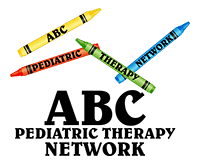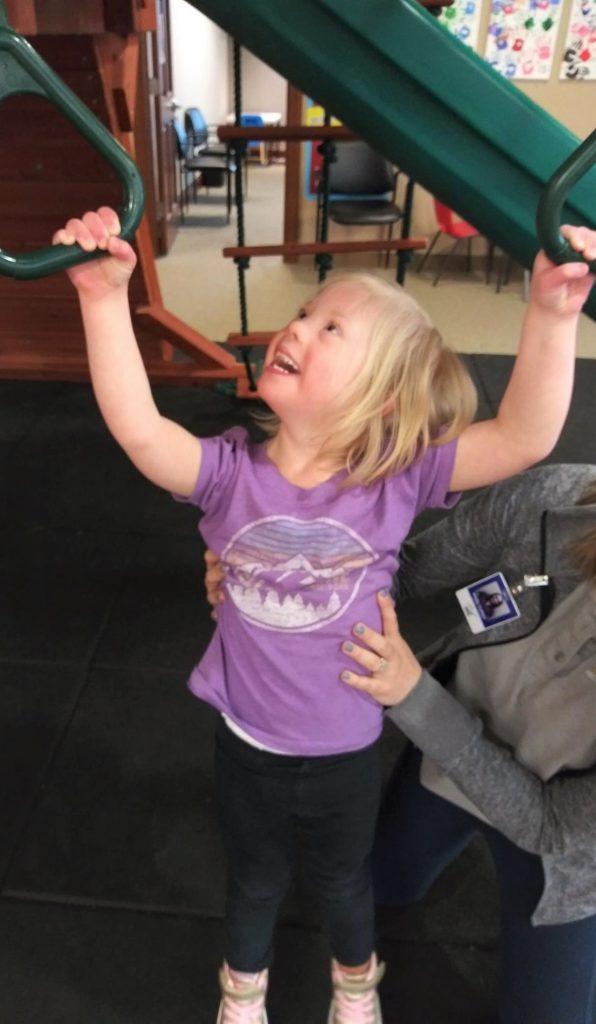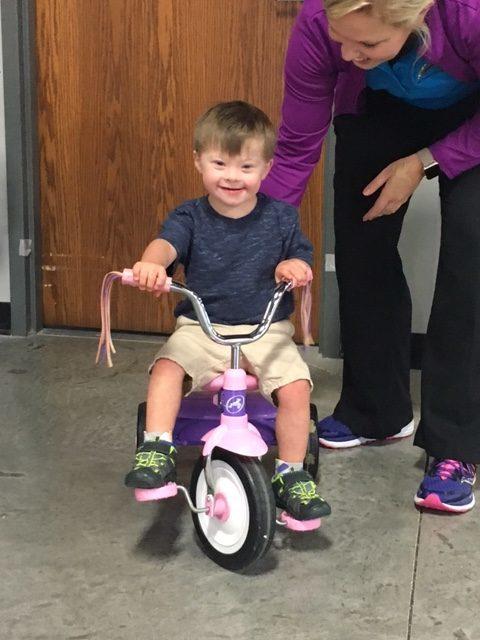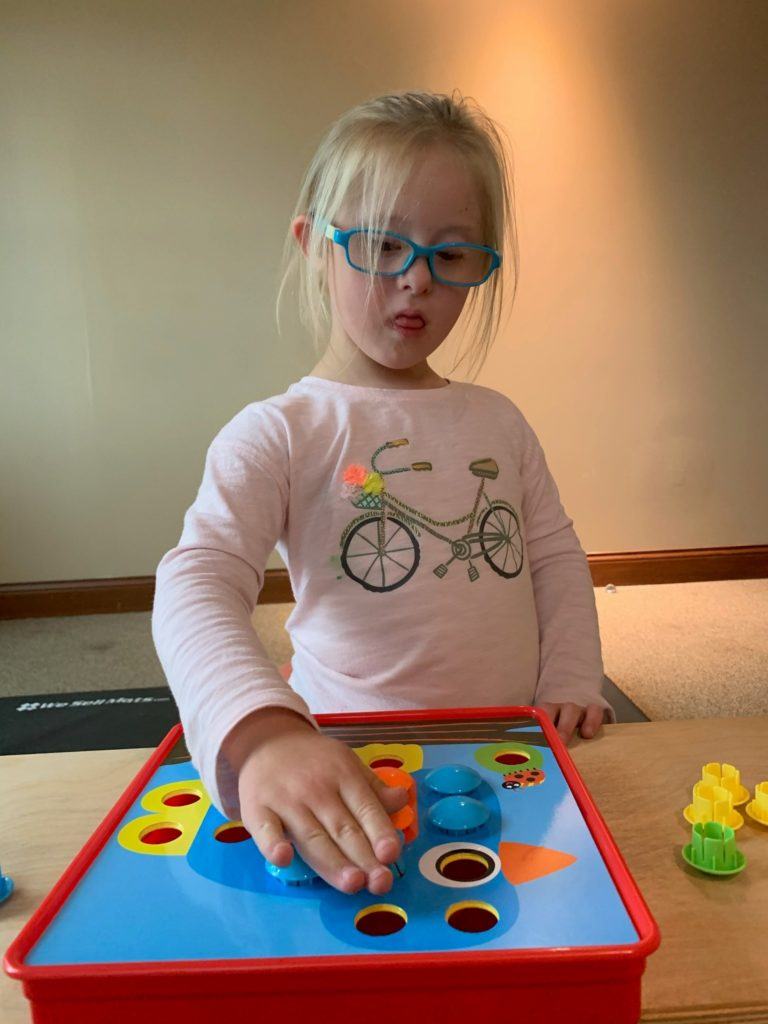Down Syndrome Treatment & Therapy
Scientifically… Down syndrome is a genetic condition resulting from the presence of one extra copy of the 21st chromosome resulting in a total of 47 chromosomes instead of the usual 46.
Developmentally…. This extra chromosome causes both physical and cognitive challenges usually meaning there is a delay in these areas.
What questions should I be asking about my child?
As a parent, what should I be doing to maximize my child’s potential?
Educate yourself. Know how to challenge your child socially, emotionally, and developmentally at each age level. Just like you do with any child.
What is low tone and what can I do to help my child with a low tone level?
Low tone presents itself like weakness (but it is NOT weakness). Your child will seem to be floppy. The results of low tone are best minimized by increasing muscle strength.
Developmental Checklist
Is your child meeting their developmental milestones?
Should I be concerned if my child is not reaching normal developmental milestones?
What is normal? Children develop at all different rates. Be informed. It is best to know what “next steps” your child should be meeting. If your baby is bringing hands to mouth then encourage reaching for a toy next. If your baby can sit propped on arms then encourage beginning to reach with 1 arm next.
Who should I consult with to learn how to challenge my child?
Your pediatrician and other parents who have children with Down Syndrome will guide and direct you. We recommend seeing a physical therapist to help with gross motor skills, an occupational therapist to help with fine motor/feeding/behavior/sensory needs and a speech pathologist for speech/language and feeding development.
Should I wait to start my child in therapy services and how often should we go?
Seeking help early will first and foremost educate you, the parent, how to facilitate development every day. Even if dealing with medical issues, a therapist will show you the best positioning to encourage head shape and overall strength. Weekly therapy is recommended as children change so quickly. We want to be here to answer all your questions as your child makes gains.
Social Development
What is it? Social initiation, social imitation, behavior patterns, social interactions, ability to make transitions from one play activity to another.
Gross Motor
What is it? Sitting, standing, moving in space or place, using our hands, carrying things for ourselves, working.
Fine Motor
What is it? Controlling small muscle movements in the hands, feet, mouth, face, etc. Activities like playing with Legos, coloring/drawing, using scissors, tying one’s shoes.
Speech Development
What is it? Producing the sounds correctly and fluently, understanding others, sharing thoughts, ideas, and feelings.
Down Syndrome FAQs
Low muscle tone in and around the mouth causes a protruding tongue. This low tone presents as weakness. Strengthening activities can help! A strong tongue and mouth musculature will improve your child’s ability to eat, drink and talk.
Get your child straw drinking as early as 10 months. Any sucking on the breast or bottle feeding will help improve mouth strength. Practice biting on hard solid foods like large carrot sticks. Place yogurt on a carrot stick and place alternately on each side of your child’s mouth to encourage side to side tongue movement.
Lying on the tummy helps a child to improve the strength in the muscles of the neck and back. These are the extensors muscles. Extension is so important for a child to gain head control for when you are holding them. Being able to hold your head up helps when your child eats. As the neck and back strength improve, your child will be better able to push up on their arms to explore their environment.
We can help! Therapists will teach you tips/tricks for tummy time success. For example, mom or dad should sit on the floor leaning their back against the couch. Lie your baby on its belly on your chest. Talk to your child encouraging them to lift and turn their head. As your baby tolerates, slowly slide yourself down until you are lying flat and your baby is flat on your chest. Then work to get your child lying on their belly on the floor with you next to them. Your voice, touch and smell will calm your child.
W sitting is when a child sits with their bottom touching the ground and their feet out to the side of them while their knees are bent. Children with Down Syndrome already have joint instability due to low muscle tone. W sitting places unnecessary force on the hip and knee joints encouraging dislocation (when the bone moves out of the joint) or subluxation (partial dislocation).
Children w sit because they are seeking a wider base of support and extra stability due to weak trunk muscles. W sitting requires little core strength to maintain and does not require the child to use trunk rotation.
Start early strengthening your child’s core muscles. What are core muscles? The muscles on the front and back of your child’s trunk. These muscles allow your child to flex and extend. Tummy time will help build strength in extensor muscles. Have your child spend lots of time on their belly. Flexor muscles can be strengthened by doing “baby sit-ups” or challenging trunk strength in all directions while your child is in your lap. Your therapist can teach you many fun games to play to increase trunk strength!
Encourage other sitting options like criss cross applesauce or sitting in a chair.
Strengthen, strengthen, strengthen! Positioning, positioning! Strength and endurance are important to maximize development potential. Encouraging proper positioning – like no W-sitting – keeps ligaments tighter not stretching them out. Strong muscles serve as another layer of joint protection as well as assisting with accomplishing developmental skills.
Parent Testimonial:
"Ethan was diagnosed with the special ability of Down Syndrome. He had open heart surgery at the age of 4 months old and has been in speech, physical, and occupational therapy most of his life. We are so thankful that we have found ABC Pediatric Therapy Network. The therapists have been wonderful. At our initial assessment the therapists were friendly, thorough, made suggestions, and most importantly they listened. They have kept us up to date with feedback and are finding interesting things for our son to do to keep engaged during therapy sessions. If you are looking for therapy for your child we highly recommend ABC."
Through steady improvement, your child can attain a boost of confidence.
Help your child find new levels of independence with pediatric physical therapy in Cincinnati and Dayton, OH.
 Skip to content
Skip to content




